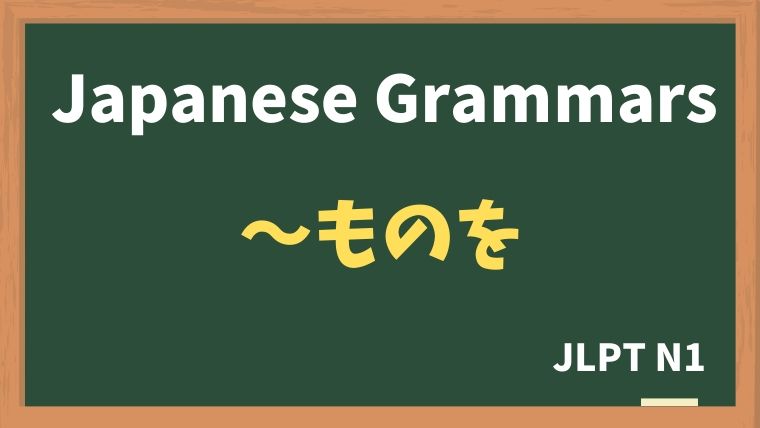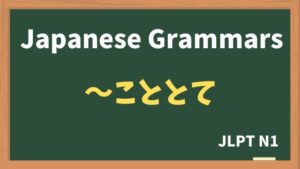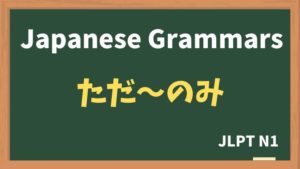
Explanation:〜ものを
fa-check-circleMeaning
"〜していたら、〜のに(実際はしなかった)"
不満や後悔、残念だという気持ちを表します。
"If (subject) had (done something), (something) wouldn't have happened."
Used to express regret or lamentation about a past action or situation. It conveys a sense of wishing that something had been different or that a certain action had not been taken. This phrase often implies a feeling of sorrow or frustration about the consequences of one's actions.
fa-check-circleForm
V(plain form)+ ものを
イA(plain form)+ ものを
ナAな / だった + ものを
fa-check-circlePoints
- Expression of Regret: "〜ものを" indicates that the speaker wishes they had acted differently or that a particular situation had not occurred.
- Reflective Tone: The phrase typically reflects on a past event, highlighting the speaker's emotional response to it.
fa-check-circleJLPT Level
N1
fa-check-circleNote
① 古い表現です。
② 会話ではあまり使いません。
Sample sentenes
ちゃんと先生の言う通りに勉強して入れば、合格できたものを。バイトばかりして勉強しなかったから落ちたんだよ。
If you had studied properly as the teacher said, you could have passed. But you kept working part-time and didn’t study, so you failed.
彼は会社をクビになってしまった。上司にあんなこと言わなければよかったものを。
He got fired from the company. If only he hadn’t said those things to his boss.
あの時、「好きだ」と言っていればよかったものを。
If only I had said 'I like you' at that time.
お金がなくて、困っているなら言ってくれればよかったものを。まさか、彼が銀行強盗をするなんて。
If he was having trouble with money, he should have told me. I never imagined he would rob a bank.
黙っていればバレなかったものを。なんで言ってしまうんだろう。
If you had kept quiet, it wouldn’t have been found out. Why did you have to say it?
Vocabulary
| Japanese |
English | |
| - | クビになる | to be fired |
| 銀行強盗 | ぎんこうごうとう | bank robbery |
| 黙る | だまる | to shut up / to stay silent |
| - | バレる | to be found out |






